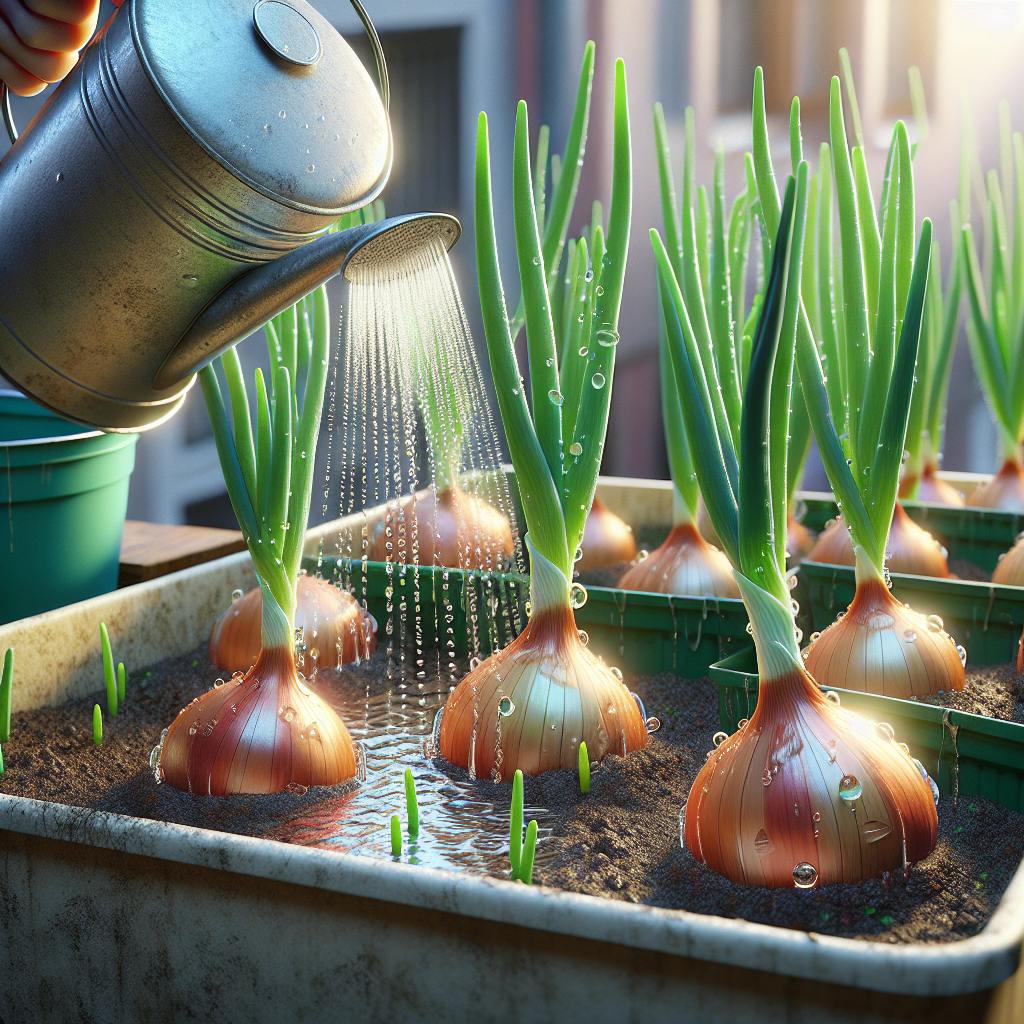Onions are a versatile vegetable that adds flavor and depth to a wide variety of dishes. They can be grown in traditional garden beds or in containers, making them an excellent option for those with limited space or poor soil quality. When growing onions in containers, it is important to understand their watering needs to ensure they thrive and produce a bountiful harvest.
Onions are a relatively low-maintenance crop, but they do require consistent watering to grow well. In general, onions prefer moist, well-drained soil that is kept consistently moist but not waterlogged. Overwatering can lead to rot and other diseases, while underwatering can result in stunted growth and poor bulb development.
When growing onions in containers, it is important to choose the right container size and type. Onions have shallow roots that spread out horizontally, so a wide, shallow container is ideal for growing them. A container that is at least 6-8 inches deep and has good drainage holes at the bottom will provide the best conditions for onions to thrive.
Before planting onions in containers, it is important to prepare the soil properly. Use a high-quality potting mix that is well-draining and nutrient-rich. Mix in some compost or aged manure to provide extra nutrients for the onions as they grow.
When it comes to watering onions in containers, there are a few key things to keep in mind. First, onions prefer consistent moisture levels throughout the growing season. This means watering regularly, especially during hot weather or periods of drought.
One way to ensure your onions get enough water is by using a drip irrigation system or a soaker hose. These systems deliver water directly to the root zone of the plants, providing consistent moisture without overwatering.
Another important factor to consider when watering onions in containers is the time of day. It is best to water onions early in the morning or late in the evening when temperatures are cooler and evaporation rates are lower. This will help prevent water loss and ensure that your onions get the hydration they need.
When watering your container-grown onions, be sure to water deeply but infrequently. This means soaking the soil thoroughly each time you water, allowing excess water to drain out of the pot through the drainage holes at the bottom. Avoid frequent shallow watering as this can lead to shallow root growth and poor plant development.
Pay attention to your onions’ leaves as well when deciding when and how much to water. If you notice wilting or yellowing leaves, this may be a sign that your plants are not getting enough water. On the other hand, if you see drooping leaves or signs of root rot, you may be overwatering your plants.
In addition to proper watering techniques, there are some other tips for ensuring healthy onion growth in containers. Regularly fertilizing your plants with a balanced fertilizer will help promote strong growth and good bulb development. Be sure to follow package instructions for application rates and frequency.
It is also important to monitor your plants for pests and diseases that can affect onion growth. Common pests that attack onions include onion thrips, aphids, and onion maggots. To prevent these pests from infesting your plants, keep an eye out for signs of damage such as yellowing leaves or distorted growth.
If you do notice pests on your onion plants, there are several organic pest control options available such as neem oil or insecticidal soap that can help manage pest populations without harming beneficial insects or pollinators.
In conclusion…
Growing onions in containers can be a rewarding experience if done correctly. By understanding their watering needs and providing consistent moisture throughout the growing season, you can ensure healthy plant growth and bountiful harvests of delicious homegrown onions.
Remember to choose the right container size and type for optimal root development,
prepare your soil properly before planting,
use proper watering techniques such as drip irrigation or soaker hoses,
water deeply but infrequently,
pay attention to leaf health,
fertilize regularly,
and monitor for pests and diseases.
By following these tips and techniques for watering onions in containers, you can enjoy a successful harvest of fresh, flavorful homegrown onions all season long!













